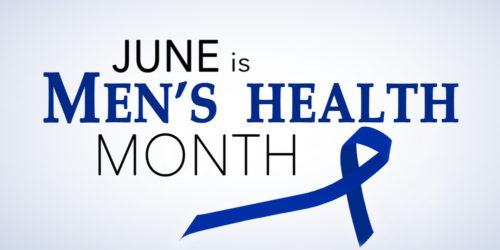By Tre Gabriel
Flawless Intern
In June we celebrate not only Father’s Day, but also Men’s Mental Health Awareness Month: a milestone that is just as important but perhaps less recognized.
Men’s Mental Health Month is especially significant because it is dedicated to reversing a concerning statistic: men are less likely than women to seek help for depression and substance use. This is partly due to stereotypes about gender roles that have been harmful to men’s emotional health for many years. In June, we focus on enhancing men’s mental and physical health, with the goal of reversing stereotypes that get in the way of men getting help. It is time to end the paradigm of the “macho man” who is not in tune with his emotions.
We recently attended The Kennedy Forum and the Mental Health America 2019 Annual Conference, where we were fortunate enough to be in the company of exemplary male role models: inspirations for men of all ages when it comes to dealing with mental health. I commend these men for taking the steps necessary to spread awareness and end discrimination and stereotypes.
Patrick Kennedy
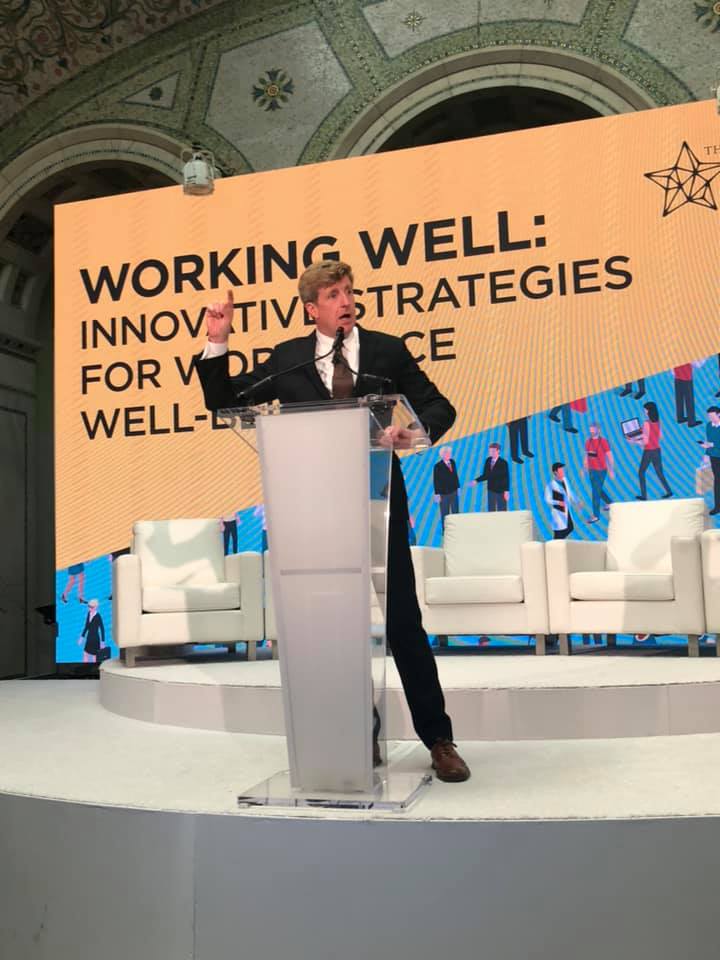
One of the leading voices and advocates for the prevention and treatment of addiction and other brain disorders, Patrick Kennedy works to transform the mental health care system in the U.S. and beyond. As a Congressman, he was a leading advocate for mental health parity and for changing the way we view mental health and addiction in this country. He coined the phrase “a check-up from the neck up” to encourage getting mental health checks along with annual physical exams. He has also prioritized The Kennedy Forum’s commitment to educating consumers and healthcare providers about The Parity Act—providing them with resources to identify the services they are entitled to receive, and to appeal denials of care when they occur.
Rwenshaun Miller
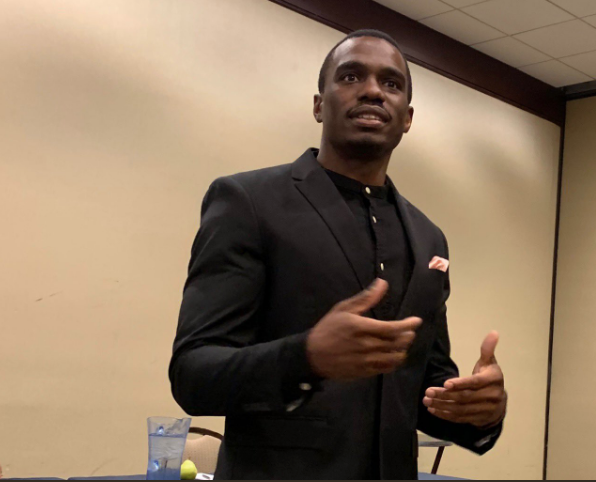
A therapist and a speaker, Rwenshaun Miller draws on his personal experiences to create safe spaces for open and honest dialogue about mental illness. He lives with Bipolar Disorder and works to change the conversation surrounding what he calls “mental blessings.” He is the author of “Injured Reserve: A Black Man’s Playbook to Manage Being Sidelined by Mental Illness.”
Scott Badesch
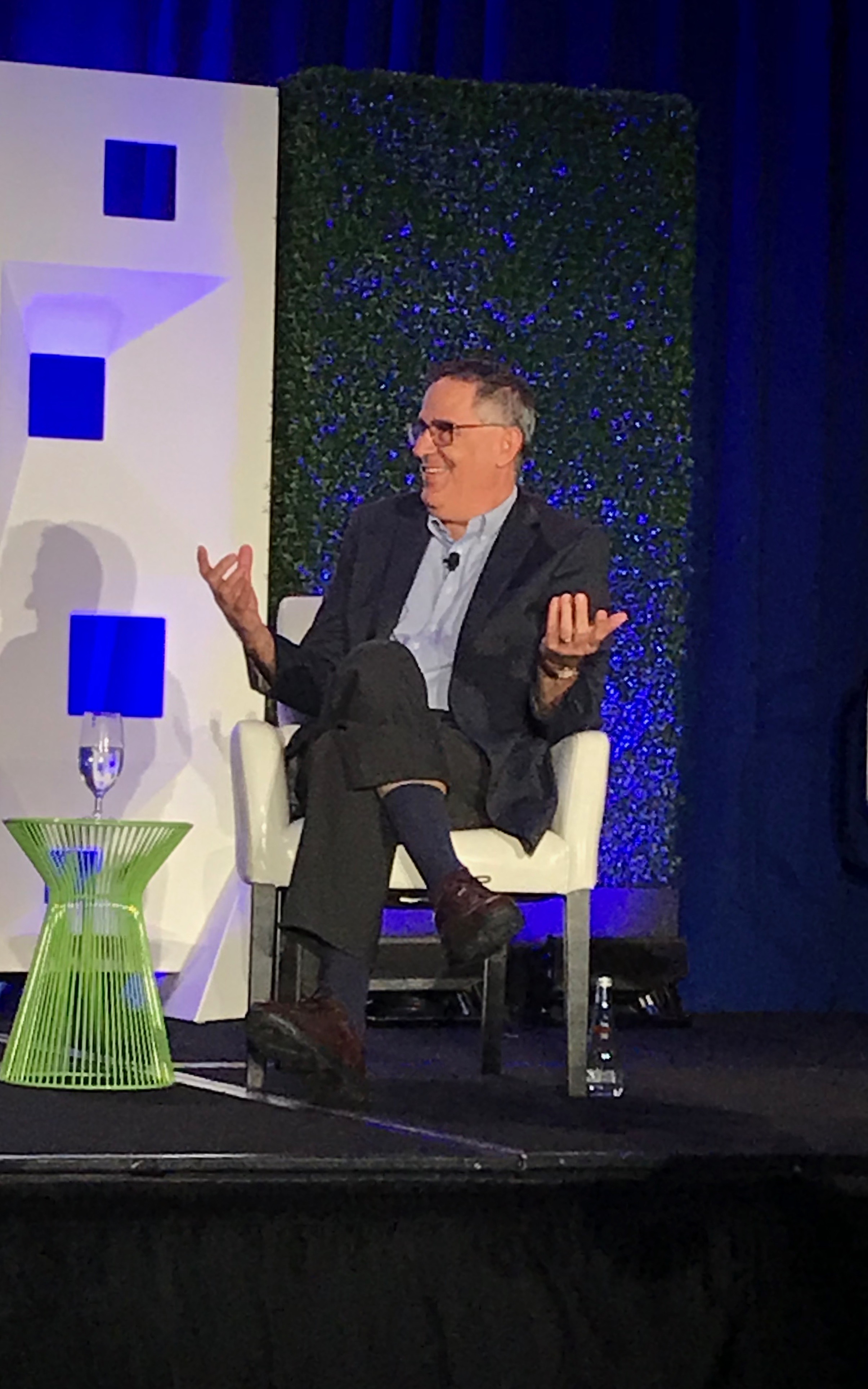
Scott Badesch is the father of a young adult with autism and President and CEO of The Autism Society. He has led the organization to a position of national leadership, supporting individuals with autism and working to end autism discrimination.
Tim Shriver
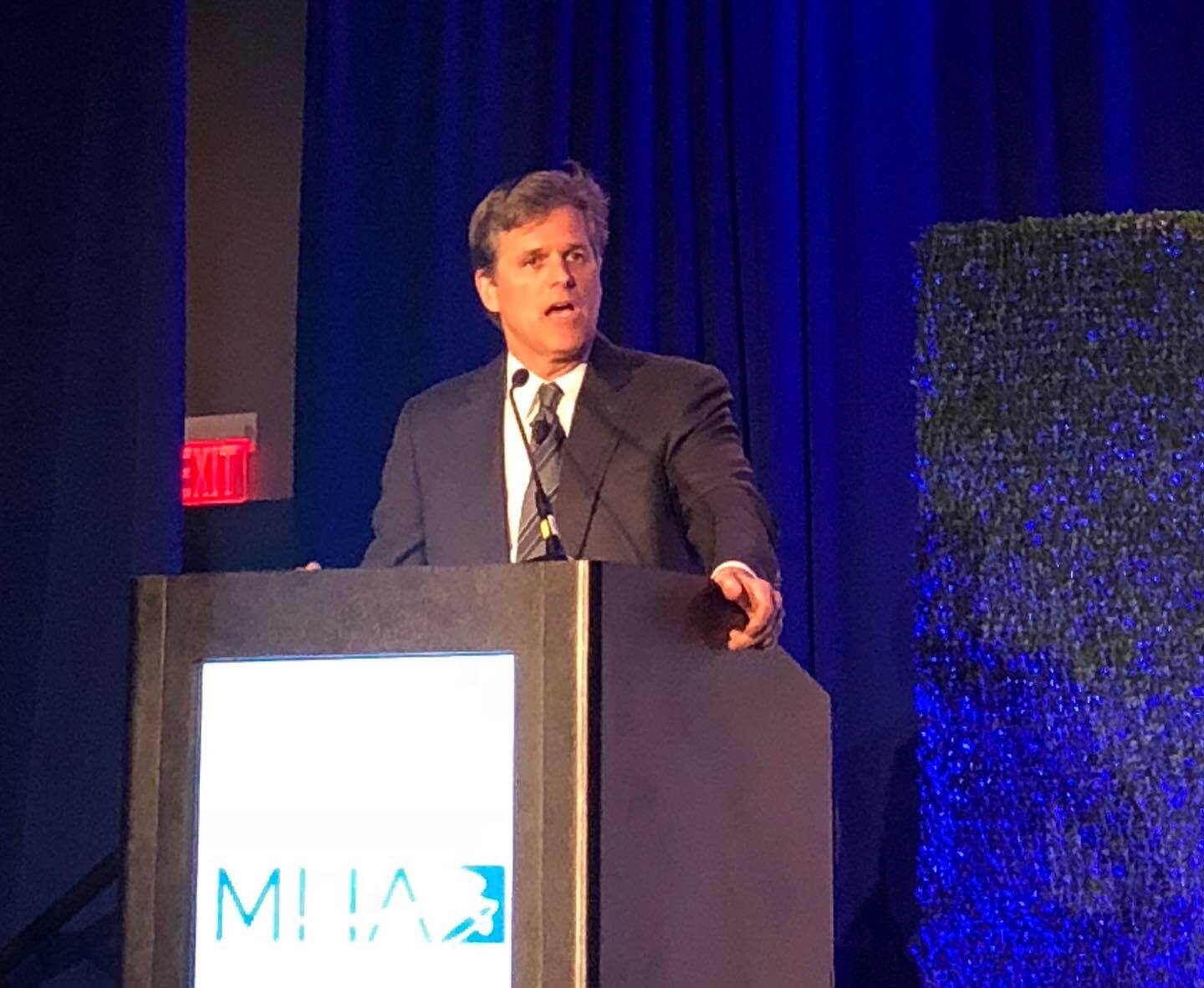
Tim Shriver is an author, human rights advocate and Chairman of the Special Olympics. He works with 5.6 million Special Olympics athletes in 172 countries to promote global unification on issues of health, inclusion, and education, through the transformative power of sports. He is also Co-founder of the Collaborative for Academic, Social, and Emotional Learning (CASEL), a resource on evidence-based social and emotional learning.
Greg Diccharry
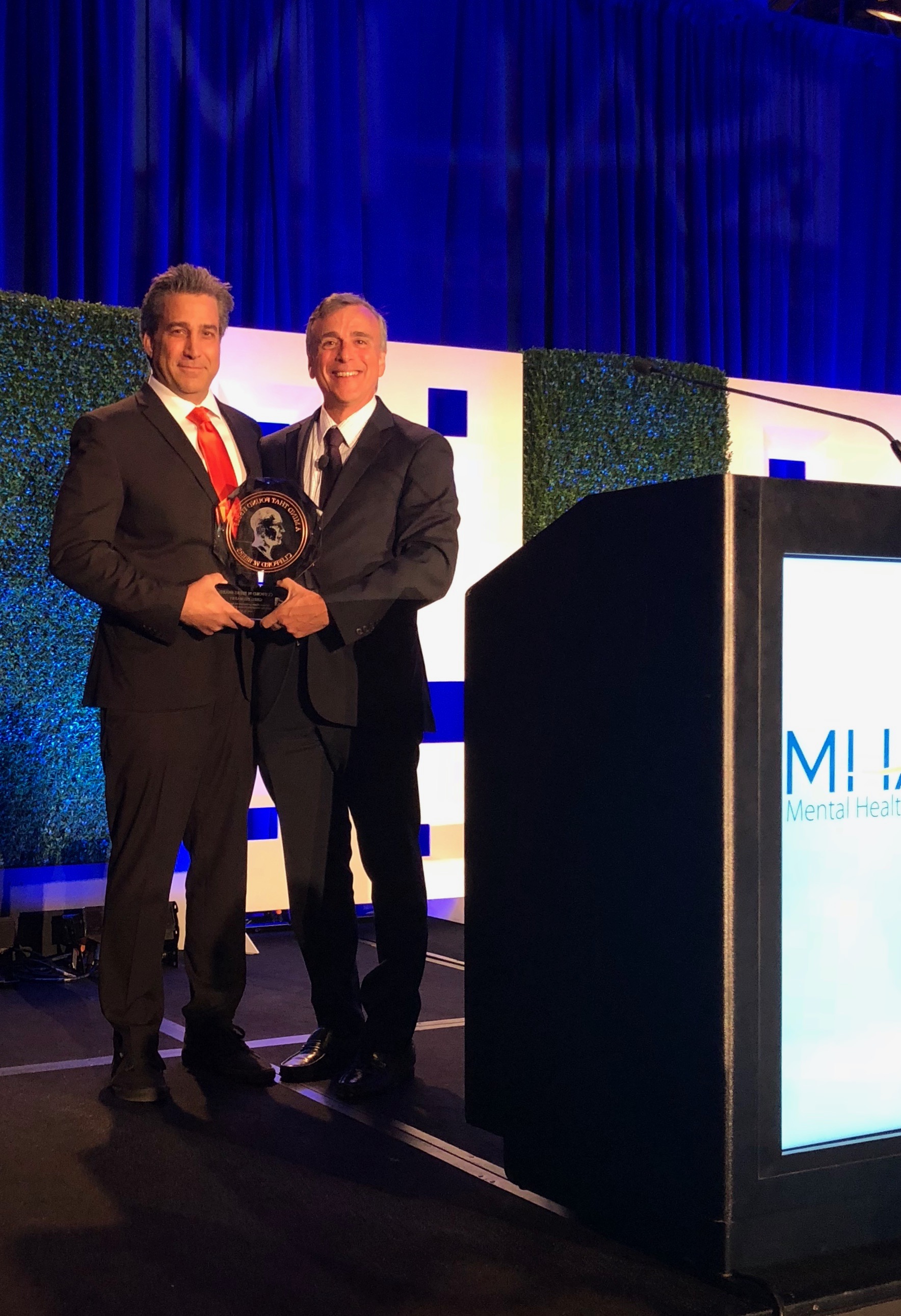
As the National Youth Empowerment Director of Magellan Healthcare, Greg Dicharry developed MY LIFE (Magellan Youth Leaders Inspiring Future Empowerment), one of the nation’s leading programs for youth in foster care who are coping with mental health and substance use challenges. Dicharry lives with co-occurring Bipolar and substance use disorders. Dicharry draws on his years of experience in psychiatric settings, as well as his successful recovery, to inspire young people in similar circumstances.
Charlie Lucas

At only 14, Charlie Lucas used his proficient coding skills to create an app called “notOK” to help his sister, who was experiencing chronic panic attacks and depression. Charlie has also spoke openly about his experience with panic attacks. NotOK is a digital panic button that takes the guesswork out of asking for help when you’re feeling vulnerable.
J. B. Pritzker
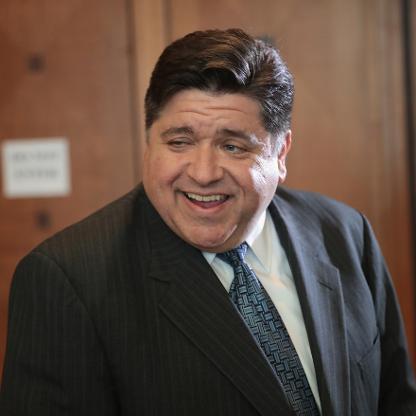
As Governor of Illinois, J.B. Pritzker believes that mental healthcare should be prioritized. He pledges to address mental health and addiction – and to discuss these issues without shame. He is working to promote honest conversations about mental health in homes, in schools, and the workplace. Illinois is leading the way in terms of mental health parity, so we applaud Governor Pritzker for his leadership.
Al Levin
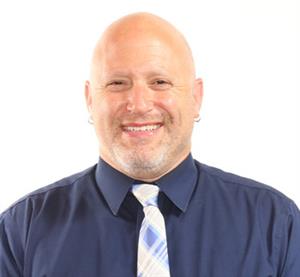
Al Levin has worked in education for over twenty years. He has recovered from Major Depressive Disorder, which inspired his passion for mental health activism, and resulted in the creation of blog and podcast series: “The Depression Files,” where he interviews men who have struggled with depression and other mental illnesses.
Justin Peck

A risk-taker all his life, Justin Peck is a world-renowned off-road and desert driver. Luckily, Peck survived a suicide attempt and turned his life around. He is now a mental health advocate, speaker, and author who lives with Bipolar Disorder. It is his mission is to raise awareness by speaking his truth and providing education and resources.
***********************************
Drawing on the inspiring stories of these men, I have decided to share my top mental health and wellness tips with you:
- Take care of your body. Being an athlete, taking care of my body has always been a top priority for me, even with my college playing days coming to an end.
- Maintain a healthy diet, drink a lot of water and stay away from processed foods, which cause mental and physical lethargy.
- Regular exercise is great because it can help you burn that anxious energy. Exercising also releases endorphins that provide a cathartic and relaxed feeling in the body and mind. In many of his talks, Dr. Bruce Perry also ways that exercise helps us feel more balanced.
Please share some tips to those in your network – you never know who needs to hear them!

